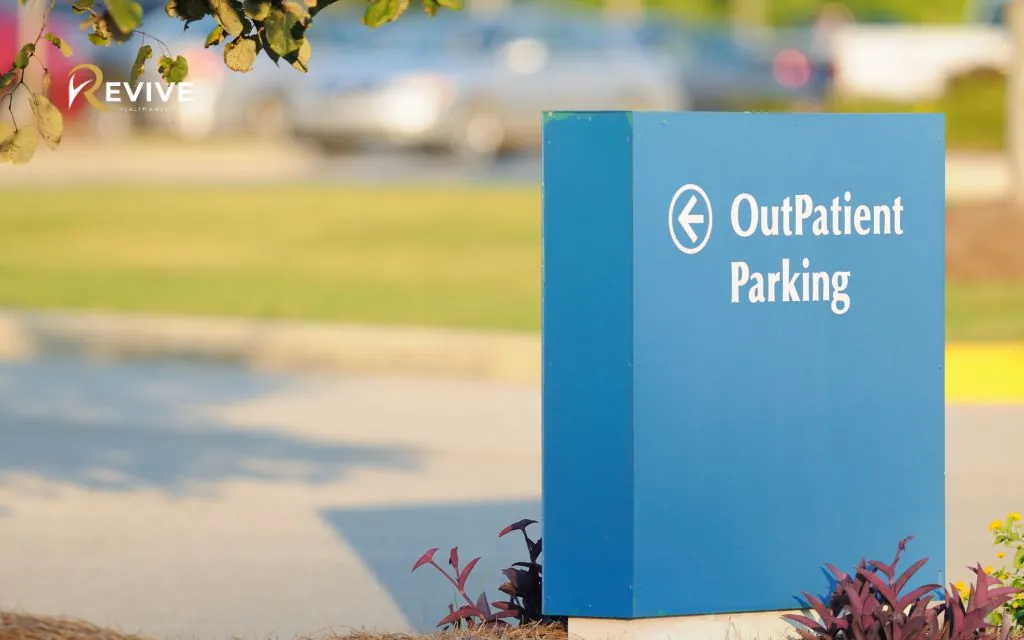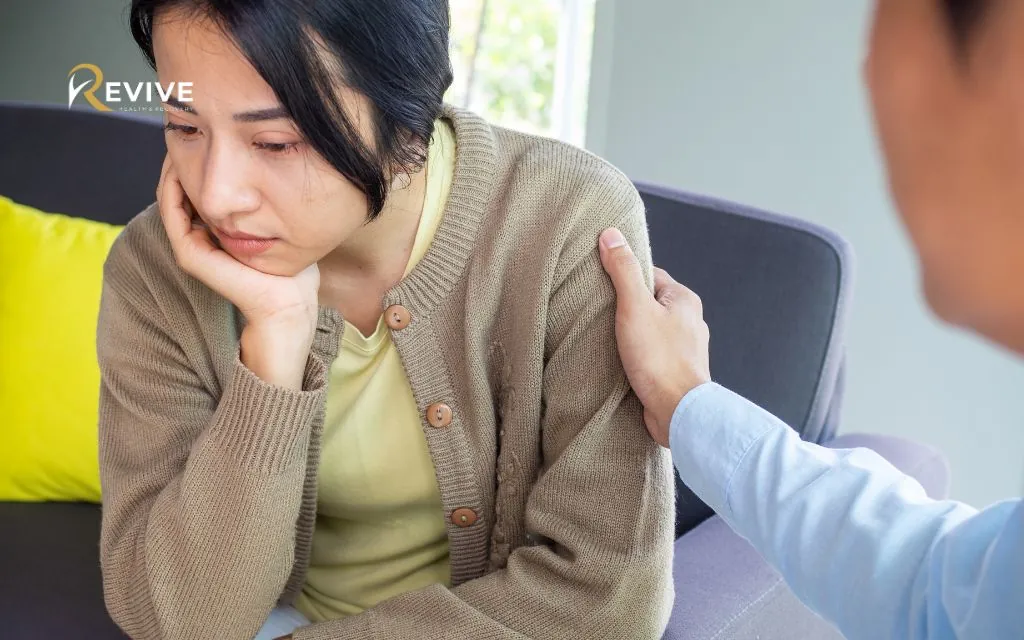Outpatient therapy for depression offers an effective treatment option for individuals seeking help without the need for inpatient care. It allows you to receive therapy sessions while continuing with your daily responsibilities. This flexibility makes it ideal for those dealing with managing the blues and wanting to improve their emotional well-being in a structured yet convenient setting.
In this guide, we’ll explain how outpatient therapy works, the different types of therapy involved, and how it can support you in managing depression. Whether you’re dealing with mild symptoms or more persistent emotional struggles, outpatient therapy can help you regain balance and take positive steps toward recovery.
Understanding What Is Outpatient Therapy for Depression
Depression affects millions of Americans each year, creating ripples that impact every aspect of daily life. Here in Denver, where our high-altitude environment can influence mood and mental wellness, finding effective treatment options is essential. What is outpatient therapy for depression? It’s a flexible, comprehensive approach to healing without requiring residential treatment.
At Revive Health Recovery, we define what is outpatient therapy for depression as structured mental health treatment that allows you to live at home while receiving professional care. Unlike inpatient programs, outpatient therapy integrates into your existing routine, making it possible to maintain work, family, and social commitments while addressing your depression.
“When exploring what is outpatient therapy for depression, remember that recovery isn’t one-size-fits-all,” explains our clinical director at Revive Health Recovery. “Outpatient therapy provides personalized treatment that respects your unique circumstances and recovery timeline.”
How Outpatient Therapy for Depression Works in Treatment
What is outpatient therapy for depression in practice? It typically involves regular sessions at our Denver facility, with treatment frequency tailored to your specific needs. Programs range from standard outpatient care (meeting once or twice weekly) to more intensive options for those requiring additional support.
The foundation of effective outpatient therapy includes:
- Individual therapy sessions focusing on your specific depression symptoms and triggers
- Evidence-based approaches like Cognitive Behavioral Therapy (CBT) and Dialectical Behavior Therapy (DBT)
- Medication management when appropriate
- Group therapy for community support and shared learning
- Family involvement to strengthen your support network
At Revive Health Recovery, our approach to what is outpatient therapy for depression creates treatment plans that address both the symptoms and their underlying causes. Our holistic wellness approach recognizes that mental health exists within the broader context of physical, emotional, and social wellbeing.

Benefits of Choosing What Is Outpatient Therapy for Depression
What is outpatient therapy for depression offering that makes it advantageous? This treatment model provides several benefits that make it an excellent choice for many Denver residents:
- Maintain Your Daily Responsibilities
Unlike residential treatment, what is outpatient therapy for depression allows you to continue working, attending school, or caring for family while receiving professional mental health support. This real-world integration means you can immediately apply new coping skills to everyday situations.
- Cost-Effective Treatment Option
Outpatient programs typically cost less than inpatient alternatives, making mental health care more accessible. At Revive Health Recovery, we work with various insurance providers to maximize your coverage. For specific information about your insurance benefits, contact our team at (303) 268-4655.
- Build Recovery Skills in Your Real Environment
One significant advantage when considering what is outpatient therapy for depression is learning to manage symptoms within your actual living environment. Rather than developing skills in a controlled setting that may not translate to daily life, you’ll practice techniques where you need them most.
- Flexible Treatment Intensity
What is outpatient therapy for depression if not adaptable? This care model offers varying levels of structure and support. As your needs change throughout recovery, we can adjust your treatment frequency and therapeutic approaches accordingly.
- Strong Community Connection
Our Denver-based outpatient programs foster connections with others facing similar challenges, creating a supportive community that understands the unique stressors of urban Colorado living.
Types of Outpatient Therapy for Depression Programs
Revive Health Recovery offers several outpatient program structures to address different depression severity levels and individual circumstances:
Standard Outpatient Program (OP)
This traditional approach to what is outpatient therapy for depression involves therapy sessions 1-2 times per week, ideal for those with mild to moderate depression who have strong support systems and stable living situations. Standard outpatient therapy provides regular professional guidance while minimizing disruption to your routine.
Intensive Outpatient Program (IOP)
Our IOP offers more comprehensive support through 3-5 weekly sessions, typically including both individual and group therapy. This program works well for those needing structured treatment but not 24-hour supervision. Many Denver professionals find this balance allows them to continue working while receiving substantial support.
Partial Hospitalization Program (PHP)
The most structured option when examining what is outpatient therapy for depression, PHP provides daily treatment (usually 5-6 hours per day, 5 days per week) while allowing you to return home each evening. This level of care bridges the gap between inpatient and traditional outpatient services, offering intensive treatment for severe depression without requiring overnight stays.
For help determining which program best fits your needs, call Revive Health Recovery at (303) 268-4655 for a confidential assessment.

Evidence-Based Approaches Used in What Is Outpatient Therapy for Depression
At Revive Health Recovery, we implement scientifically validated therapeutic methods that have demonstrated effectiveness for depression treatment:
Cognitive Behavioral Therapy (CBT)
CBT helps identify and change negative thought patterns that contribute to depression. This practical approach provides concrete skills for managing symptoms and preventing relapse.
Dialectical Behavior Therapy (DBT)
DBT combines acceptance strategies with change techniques, teaching mindfulness, distress tolerance, emotion regulation, and interpersonal effectiveness – skills particularly valuable for those dealing with both depression and overwhelming emotions.
Interpersonal Therapy (IPT)
IPT focuses on improving communication patterns and building stronger relationships, addressing depression’s social dimensions and the connection between mood and interpersonal interactions.
Mindfulness-Based Cognitive Therapy (MBCT)
MBCT integrates traditional cognitive therapy with mindfulness practices, helping you recognize depressive thought patterns early and respond skillfully before they trigger a downward spiral.
Medication Management
When appropriate, our psychiatrists provide medication evaluation and ongoing supervision as part of a comprehensive treatment approach, ensuring safe and effective pharmacological support.
Complementary Approaches to Enhance What Is Outpatient Therapy for Depression
In addition to traditional therapy, Revive Health Recovery incorporates complementary approaches that support overall mental wellness:
Holistic Wellness Services
Our programs may include therapeutic massage, yoga, and mindfulness training – services similar to mental health spa therapies in Denver but integrated within a clinical framework for maximum therapeutic benefit.
Stress Management Techniques
Living in Denver’s fast-paced environment requires effective stress management. We teach practical relaxation techniques comparable to stress relief spa treatments in Colorado but designed specifically for depression recovery.
Nutrition and Physical Activity Guidance
The mind-body connection is crucial in depression treatment. Our programs address physical wellness alongside mental health, similar to approaches used in holistic wellness spas in Denver but with clinical oversight.
Sleep Hygiene Improvement
Sleep disturbances both contribute to and result from depression. We provide targeted interventions to improve sleep quality, recognizing its fundamental role in mental health recovery.
Who Can Benefit from Outpatient Therapy for Depression?
What is outpatient therapy for depression best suited for? Our services at Revive Health Recovery serve various individuals, including:
- People experiencing mild to moderate depression who don’t require 24-hour supervision
- Those transitioning from inpatient care to more independent living
- Individuals seeking depression treatment while maintaining work or school commitments
- People with supportive home environments conducive to recovery
- Those with co-occurring mental health conditions like anxiety that benefit from integrated treatment
During your initial assessment, our clinical team will help determine if outpatient therapy matches your specific needs or if a different level of care would better support your recovery.
Starting What Is Outpatient Therapy for Depression at Revive Health Recovery
Beginning outpatient depression treatment involves several steps:
- Initial Contact: Call (303) 268-4655 to speak with our admissions team about your situation and schedule an assessment.
- Comprehensive Assessment: Meet with our clinical team for a thorough evaluation of your depression symptoms, history, and treatment goals.
- Personalized Treatment Planning: Together, we’ll develop a tailored therapy plan addressing your specific needs and preferences.
- Program Assignment: Based on your assessment, we’ll recommend the appropriate level of outpatient care.
- Regular Progress Evaluation: Throughout treatment, we’ll continuously assess your progress and adjust your care plan as needed.
Our Denver location makes accessing quality mental health care convenient, with flexible scheduling options to accommodate busy lifestyles.

What Is Outpatient Therapy for Depression vs. Other Treatment Options
Understanding how outpatient therapy compares to other treatment approaches can help you make informed decisions about your depression care:
Outpatient vs. Inpatient Treatment
While inpatient programs provide 24-hour supervision in a residential setting, what is outpatient therapy for depression allows you to receive treatment while living at home. Inpatient care is typically recommended for those in crisis or with severe depression requiring constant monitoring, while outpatient services work well for those with stable living situations who don’t need round-the-clock support.
Outpatient Therapy vs. Self-Help Approaches
Self-help strategies like mindfulness apps or wellness books can supplement professional treatment but rarely provide adequate support for clinical depression alone. What is outpatient therapy for depression offers professional guidance, personalized interventions, and community support that self-directed approaches cannot.
Outpatient Programs vs. Spa Treatments
While therapeutic massage and relaxation treatments at Denver spas can support overall wellness, they don’t replace clinical depression treatment. At Revive Health Recovery, we may incorporate similar mind-body techniques within a comprehensive treatment framework supervised by mental health professionals.
Insurance and Payment Options for What Is Outpatient Therapy for Depression
Navigating treatment costs represents a significant concern for many seeking depression care. Revive Health Recovery works with numerous insurance providers to make treatment accessible. Most plans provide some coverage for outpatient mental health services, though benefits vary by provider and policy.
For specific information about your coverage and potential out-of-pocket expenses, contact our admissions team at (303) 268-4655. We’ll help verify your benefits and explain available payment options.
For those without adequate insurance coverage, we can discuss alternative payment arrangements and connect you with resources that might help fund your treatment.

FAQs About What Is Outpatient Therapy for Depression
How long does outpatient therapy for depression typically last?
Treatment duration varies based on individual needs, depression severity, and progress. Some people benefit from 8-12 weeks of structured therapy, while others may need longer-term support. At Revive Health Recovery, we customize treatment length to your specific situation rather than applying a one-size-fits-all approach.
Will my insurance cover outpatient depression treatment?
Most insurance plans cover outpatient mental health services, though coverage levels vary. Revive Health Recovery works with many major insurance providers. Contact us at (303) 268-4655 for a complimentary benefits verification.
Can I continue working while in outpatient therapy?
Yes, maintaining employment while receiving treatment represents one primary advantage of outpatient programs. Our flexible scheduling accommodates work commitments, with evening and weekend options available at our Denver facility.
How do I know if outpatient therapy is right for my depression?
Determining the appropriate level of care involves assessing several factors including depression severity, suicide risk, support system strength, and previous treatment response. Our clinical team conducts thorough evaluations to recommend the most effective approach for your situation.
What makes Revive Health Recovery’s outpatient programs different from other options in Denver?
Revive Health Recovery combines evidence-based clinical approaches with holistic elements similar to therapeutic spa treatments, creating comprehensive depression care that addresses both symptoms and underlying causes. Our trauma-informed, individualized approach sets us apart from standard treatment centers in the Denver area.
Take Your First Step Toward Depression Recovery
Depression doesn’t have to control your life. What is outpatient therapy for depression at Revive Health Recovery offers effective, flexible treatment that fits your lifestyle and addresses your unique needs. Our Denver facility provides a supportive environment where healing happens through evidence-based approaches and compassionate care.
Ready to explore what is outpatient therapy for depression and how it can help you overcome your symptoms? Contact Revive Health Recovery today at (303) 268-4655 or visit our facility at 1427 S Federal Blvd, Denver, CO 80219. Our team stands ready to support your journey toward mental wellness with personalized outpatient depression treatment.
Don’t wait to feel better. Reach out now and take the first step toward a life beyond depression.



